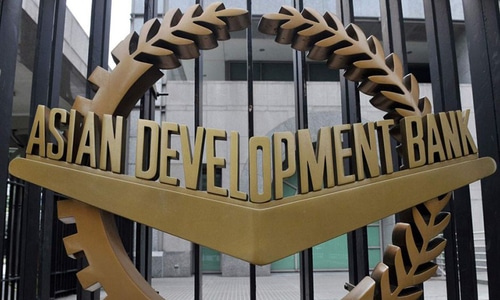Despite several reforms, Pakistan’s tax-to-GDP ratio continues to lag behind regional averages, with limited success in capturing revenue from the informal economy, according to a new report by the Asian Development Bank (ADB).
The report, titled “Taxing Informal and Hard-to-Tax Sectors: A Policy Guide,” highlights the shortcomings of Pakistan’s current tax policy. It reveals that while nominal income tax revenue has increased over the years, real revenue growth has remained stagnant, reflecting the country’s inability to make substantial progress in expanding the formal tax base or increasing compliance among existing taxpayers.
The ADB suggests that a more targeted approach is needed to improve tax collection. Expanding the number of registered taxpayers, as has been attempted in recent years, has not resulted in meaningful revenue gains. Instead, many new filers either report minimal taxable income or fail to comply fully with tax obligations, leading to increased administrative costs without corresponding benefits.
According to the report, Pakistan’s tax system remains heavily dependent on indirect taxes, with limited success in taxing the informal economy. The country’s tax-to-GDP ratio remains at just 10%, far below the regional average of around 20%.
Additionally, the formal sector in Pakistan is small relative to other countries, with only 7.6% of the labor force registered for income tax, compared to countries like Vietnam, which have higher taxpayer participation in the formal system.
One of the key findings of the report is that the expansion of the tax base, while it may seem successful on paper, has not resulted in a corresponding increase in revenue. For instance, the total number of tax filers has increased, but a substantial portion of these filers report zero tax payments, undermining the overall effectiveness of tax reforms.
The ADB report states that while Pakistan’s formal sector has tripled since 2014, this expansion has not led to an increase in tax revenue. The government’s strategy of incentivizing compliance through increased withholding tax rates on non-filers has not proven effective. The report further highlights that many new businesses or individuals registering for taxes do so only to avoid higher penalties, often without genuinely contributing to tax revenue.
The ADB also points to the ongoing problem of the country’s informal sector, which remains outside the tax net, hindering revenue growth. Despite efforts to curb informal economic activities, such as restricting non-filers from engaging in high-value transactions or imposing penalties, the informal economy continues to flourish.
In its analysis, the ADB compares Pakistan’s approach to that of other developing countries like Rwanda, South Africa, and Uganda, where expanding the tax base alone did not lead to higher revenue collections. The ADB argues that Pakistan’s focus on increasing the number of registered taxpayers has not been effective because many new filers either remain non-compliant or contribute very little in terms of tax.




